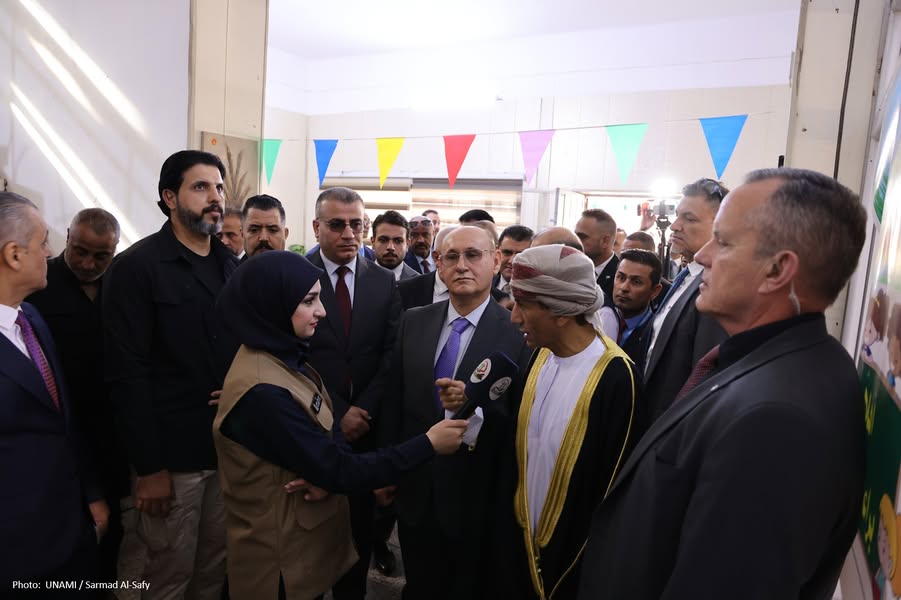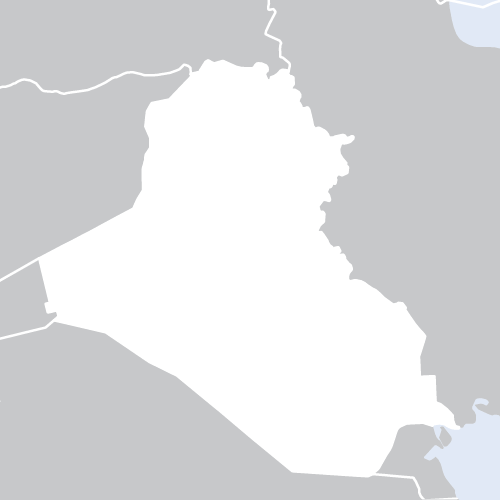[]
tap to use a supported browser
Add a new device”,”1_572460b539878eceb021da6f0ba4ad27″:”Search in conversation”,”1_588c13ae9c29e4cad57ff0623473419b”:”You can’t message this group”,”1_59e4d389c284d58c6a7006f6b0562811″:”Photo reminders”,”1_5a928f58cc901c2f036154287466ac52″:”AI-assisted message”,”1_5af74bfaddbfdad2526294491119b1ac”:”Call notifications”,”1_5b15ff8357f34309683c127f15840806″:”Chat plugin”,”1_5b4abffee3f305389a50710f7d485df8″:”Introducing AI stickers”,”1_5db467841ea204babe44c0bb4275c013″:”Message sent”,”1_5dbfacce1399e2f5cb7a6380beba0d09″:”This may take a moment…”,”1_67045d680945154400cf43a419e4ff9b”:”Please update your app”,”1_6831028223b7159f4a16a762309aeda5″:”Invite with a link”,”1_68667c64d4e948188b48f13c7b8324c0″:”Open Facebook app”,”1_69b4fbe4cc084fbff4fcf68d2f9d5fed”:”Charge your Bluetooth keys regularly.”,”1_6cd66115c7adbd7d8d450aaa8a5015d9″:”Contact phone number”,”1_74630a0214a11fa5068b0655daafe2de”:”Facebook user”,”1_752a4442f6eb09a9c79427caefd174c5″:”4 things to know about your information”,”1_76f971d0cf5dc8a40e43aa6592bf6015″:”{num_activities} activities”,”1_79cb46c945b63a0e9c8bd77518fd38f0″:”Add a profile picture”,”1_7a4acef2efaf880fb516077a756bea63″:”Image ID not returned.”,”1_8842669d806d74dfddee6ca515f2d8db”:”Look up info”,”1_8c442034b2e9c1bcc394eb6907b1d510″:”You’ll need to log in with Workplace to continue this video chat.”,”1_92469592130a0e85a5e996fa12296099″:”Account details”,”1_9dbc389a7657e7c498fe3cd2e8c903b9″:”Messenger preview”,”1_a02773f3eb15c1a027aacc96b97f526f”:”Invalid link”,”1_a2a5724aff5a7cca2d69a4e30e754431″:”Open System Preferences, then use the Security & Privacy controls to grant Workplace Chat access to the camera and microphone. You may need to restart the app for the settings to be applied.”,”1_aa3f089a4051c1e5ed29b0473ecb462c”:”Last name”,”1_aa408b4afeb14b97cfcc9915842b0b00″:”Confirm your identity”,”1_aa542254b59b7d679b6fdb93590402d3″:”Show picture-in-picture”,”1_b2fcaaf664421e83c164b2db208e6c2b”:”Dance party”,”1_bac81400de6624c1e42b308333c30946″:”Move to grid”,”1_beebce762afa64542777f56c09d80178″:”How to add friends on Messenger Kids”,”1_c0a187c52a5eda47cc616d9da9d48264″:”This lets you play Apple Music tracks, add tracks to your music library and more.”,”1_c0bf6a1e1c71e84db2d85d977ea0352c”:”You asked to chat with {name1}.”,”1_c470052944bf04f16919dc993025b1f3″:”Send separately”,”1_c65fba5a9f5914e3837eddb303417521″:”Placed on {date} · Canceled”,”1_c70d03f023ad810666fb2b89f962b34f”:”Blue/yellow”,”1_c995f1a5f939c822beefb3ff278bf59c”:”Thanks for being a superstar in this chat!”,”1_cd4fecb8aead25c0effd4ac632f98755″:”Cut over this chat to E2EE”,”1_d138dd68d66991762d0960a448c9dbf1″:”Chat members”,”1_d2306e12f55ac0dad00099ff94a9ecce”:”Install Workplace Chat audio sharing software?”,”1_d2abcef26824c99a9b7b66ebfd5b36a8″:”Manage folders”,”1_d47fd6e064b6d1afcb5e5d3674dff1e2″:”Start chatting”,”1_d757e02fa81fb3f8bb93135f107c6516″:”Test speaker”,”1_db1d708e4daa1d62b46287504eae8acc”:”This video can’t be sent”,”1_df5b853bbb16433e2ce5f781de7d297b”:”Squad hang”,”1_e4cad6566ee6fa7548d52ba7824506c0″:”Remove address”,”1_e67d8767d558befbca8c04d5b99d91d9″:”Draw a necklace”,”1_e811fc5925e4dcd78c046551cb24e889″:”This chat will show as unread”,”1_ed32b0c87ff94ede7145d9b17ba192ba”:”View {remainingCount} more photos”,”1_ee45d6f16d585bfe6cebb6800c4822d4″:”Add to her picture”,”1_f5bffa9a6c448e63ca61155760dca5fd”:”No messages”,”1_f6ffd6ae71c283f8aec7c7bc2cbfa289″:”Open audio device selector menu”,”1_fc4f960e763c5eedcbf5c27cf0411d4b”:”{name1} wants to add {lastPendingKifTargetName} as a friend”,”1_fe319617901612fc3c881e2d69ade21d”:”Choose kids for {name1}, {name2} and {name count} others to chat with”}},551],[“LinkshimHandlerConfig”,[],{supports_meta_referrer:false,default_meta_referrer_policy:”default”,switched_meta_referrer_policy:”origin”,non_linkshim_lnfb_mode:”ie”,link_react_default_hash:”AT1pgztHI4QFQeOP46ogYdICH-9G8vQ3M1Btolh-rQ8Zbpzu3CPfQcks5lGjgtLcG_abghdEOQoZapP8VJG2CDUSsVFZcqmImHO1VRgLJvHZtzqIbaf6VgJKzzrsjaq9n_JajSlg3ooZMjLRA5e0ljt9R4R9_gsyiXMl”,untrusted_link_default_hash:”AT3ZA6Fndca4omUASbBCCDDqiDmwPlUCruP6LayZN6DXpAv98FNV8gHLP04Dxg60zHte7d07TqKTKW_4kHHgvk9aj6ZbqVIhnbNquae5LrjRfQ0jWb2fRez-NP5rBNDT79yzJgIzR_S2FoFXe3xsL-kW8FXD4nuq1Y8F”,linkshim_host:”l.facebook.com”,linkshim_path:”/l.php”,linkshim_enc_param:”h”,linkshim_url_param:”u”,use_rel_no_opener:false,use_rel_no_referrer:false,always_use_https:false,onion_always_shim:true,middle_click_requires_event:false,www_safe_js_mode:”hover”,m_safe_js_mode:null,ghl_param_link_shim:false,click_ids:[],aggr_ids:null,is_linkshim_supported:true,current_domain:”facebook.com”,blocklisted_domains:[“ad.doubleclick.net”,”ads-encryption-url-example.com”,”bs.serving-sys.com”,”ad.atdmt.com”,”adform.net”,”ad13.adfarm1.adition.com”,”ilovemyfreedoms.com”,”secure.adnxs.com”],is_mobile_device:false},27],[“AnalyticsCoreData”,[],{device_id:”$^|Acbh_2bBV79UAVldP193vQkXVjLHugUKbsDtAhUTn1Jf07y_qjyRHTYqG24pBH5L9zn9Z4O4mTZWHmDpX_aiHZml7V97z3X1xkubT6rnmH2xSlhh91HnYQ8|fd.AcaRhd_KdEuMS69-Qq_EvRjo_pHL7szfCLEyH3Cs4YCPyzIuKjX1HVC4vMcy3c2DW1F3Ox6wxMwCg6-jYe2BXqIq”,app_id:”2220391788200892″,app_version:”1030.047.599.0 (1030047599)”,enable_bladerunner:false,enable_ack:true,push_phase:”C3″,enable_observer:false,enable_cmcd_observer:false,enable_dataloss_timer:false,enable_fallback_for_br:true,queue_activation_experiment:false,max_delay_br_queue:60000,max_delay_br_queue_immediate:3,max_delay_br_init_not_complete:3000,consents:{},app_universe:1,br_stateful_migration_on:true,enable_non_fb_br_stateless_by_default:false,use_falco_as_mutex_key:false,is_intern:false},5237],[“InitialCookieConsent”,[],{deferCookies:false,initialConsent:[1,2],noCookies:false,shouldShowCookieBanner:false,shouldWaitForDeferredDatrCookie:true,optedInIntegrations:[“adobe_marketo_rest_api”,”brightedge”,”chili_piper_api”,”cloudfront_cdn”,”giphy_media”,”google_ads_pixel_frame_legacy”,”google_ads_pixel_img_legacy”,”google_ads_pixel_legacy”,”google_ads_remarketing_tag”,”google_ads_services”,”google_analytics_4_tag”,”google_apis”,”google_cached_img”,”google_double_click_loading”,”google_double_click_redirecting”,”google_double_click_uri_connect”,”google_double_click_uri_frame”,”google_double_click_uri_img”,”google_fonts”,”google_fonts_font”,”google_img”,”google_maps”,”google_paid_ads_frame”,”google_paid_ads_img”,”google_tag”,”google_translate”,”google_universal_analytics_legacy”,”google_universal_analytics_legacy_img”,”google_universal_analytics_legacy_script”,”google_uri_frame”,”google_uri_script”,”jio”,”linkedin_insight”,”linkedin_insight_img”,”mapbox_maps_api”,”medallia_digital_experience_analytics”,”nytimes_oembed”,”reachtheworld_s3″,”salesforce_mcp_beacon”,”soundcloud_oembed”,”spotify_oembed”,”spreaker_oembed”,”ted_oembed”,”tenor_api”,”tenor_images”,”tenor_media”,”tiktok_oembed”,”twitter_analytics_pixel”,”twitter_analytics_pixel_img”,”twitter_legacy_embed”,”vimeo_oembed”,”youtube_embed”,”youtube_oembed”,”advertiser_hosted_pixel”,”airbus_sat”,”amazon_media”,”apps_for_office”,”arkose_captcha”,”aspnet_cdn”,”autodesk_fusion”,”bing_maps”,”bing_widget”,”boku_wallet”,”bootstrap”,”box”,”cardinal_centinel_api”,”chromecast_extensions”,”cloudflare_cdnjs”,”cloudflare_datatables”,”cloudflare_relay”,”conversions_api_gateway”,”demandbase_api”,”digitalglobe_maps_api”,”dlocal”,”dropbox”,”esri_sat”,”facebook_sdk”,”fastly_relay”,”gmg_pulse_embed_iframe”,”google_ads_conversions_tag”,”google_drive”,”google_fonts_legacy”,”google_hosted_libraries”,”google_oauth_api”,”google_oauth_api_v2″,”google_recaptcha”,”here_map_ext”,”hive_streaming_video”,”iproov”,”isptoolbox”,”jquery”,”js_delivr”,”kbank”,”mastercard_click_to_pay”,”mathjax”,”meshy”,”meta_pixel”,”metacdn”,”microsoft_excel”,”microsoft_office_addin”,”microsoft_onedrive”,”microsoft_speech”,”microsoft_teams”,”mmi_tiles”,”oculus”,”open_street_map”,”paypal_billing_agreement”,”paypal_fastlane_sdk”,”paypal_oauth_api”,”payu”,”payu_india”,”plaid”,”platformized_adyen_checkout”,”plotly”,”pydata”,”razorpay”,”recruitics”,”rstudio”,”salesforce_lighting”,”shopify_app_bridge”,”stripe”,”team_center”,”tripshot”,”trustly_direct_debit_ach”,”twilio_voice”,”unifier”,”unpkg”,”unsplash_api”,”unsplash_image_loading”,”vega”,”whatsapp_arkose_captcha”,”yoti_api”,”youtube_oembed_api”],hasGranularThirdPartyCookieConsent:true,exemptedIntegrations:[“advertiser_hosted_pixel”,”airbus_sat”,”amazon_media”,”apps_for_office”,”arkose_captcha”,”aspnet_cdn”,”autodesk_fusion”,”bing_maps”,”bing_widget”,”boku_wallet”,”bootstrap”,”box”,”cardinal_centinel_api”,”chromecast_extensions”,”cloudflare_cdnjs”,”cloudflare_datatables”,”cloudflare_relay”,”conversions_api_gateway”,”demandbase_api”,”digitalglobe_maps_api”,”dlocal”,”dropbox”,”esri_sat”,”facebook_sdk”,”fastly_relay”,”gmg_pulse_embed_iframe”,”google_ads_conversions_tag”,”google_drive”,”google_fonts_legacy”,”google_hosted_libraries”,”google_oauth_api”,”google_oauth_api_v2″,”google_recaptcha”,”here_map_ext”,”hive_streaming_video”,”iproov”,”isptoolbox”,”jquery”,”js_delivr”,”kbank”,”mastercard_click_to_pay”,”mathjax”,”meshy”,”meta_pixel”,”metacdn”,”microsoft_excel”,”microsoft_office_addin”,”microsoft_onedrive”,”microsoft_speech”,”microsoft_teams”,”mmi_tiles”,”oculus”,”open_street_map”,”paypal_billing_agreement”,”paypal_fastlane_sdk”,”paypal_oauth_api”,”payu”,”payu_india”,”plaid”,”platformized_adyen_checkout”,”plotly”,”pydata”,”razorpay”,”recruitics”,”rstudio”,”salesforce_lighting”,”shopify_app_bridge”,”stripe”,”team_center”,”tripshot”,”trustly_direct_debit_ach”,”twilio_voice”,”unifier”,”unpkg”,”unsplash_api”,”unsplash_image_loading”,”vega”,”whatsapp_arkose_captcha”,”yoti_api”,”youtube_oembed_api”],nonBlockingBannerPage:false,consentRequiredForMetaPixel:false},4328]],require:[[“DeferredCookie”,”addToQueue”,[],[“_js_datr”,”j64cacEj-kArddkKtwHwifTK”,34560000000,”/”,true,false,true,”.facebook.com”]],[“FbtLogging”],[“ODS”],[“IntlQtEventFalcoEvent”],[“CometExceptionDialog.react”],[“FDSTooltipDeferredImpl.react”],[“bumpVultureJSHash”],[“RequireDeferredReference”,”unblock”,[],[[“FbtLogging”,”ODS”,”IntlQtEventFalcoEvent”,”CometExceptionDialog.react”,”FDSTooltipDeferredImpl.react”,”bumpVultureJSHash”],”sd”]],[“RequireDeferredReference”,”unblock”,[],[[“FbtLogging”,”ODS”,”IntlQtEventFalcoEvent”,”CometExceptionDialog.react”,”FDSTooltipDeferredImpl.react”,”bumpVultureJSHash”],”css”]]]},hsrp:{hsdp:{clpData:{“6476″:{r:1000,s:1},”1838142″:{r:1,s:1},”1744178″:{r:1,s:1},”1814852″:{r:1},”1848815”:{r:10000,s:1}},gkxData:{“20935″:{result:true,hash:null},”21043″:{result:false,hash:null},”4″:{result:false,hash:null},”196″:{result:false,hash:null},”1154″:{result:false,hash:null},”1174″:{result:false,hash:null},”1514″:{result:false,hash:null},”1624″:{result:false,hash:null},”2160″:{result:false,hash:null},”3739″:{result:false,hash:null},”4008″:{result:false,hash:null},”4022″:{result:false,hash:null},”4225″:{result:false,hash:null},”5163″:{result:false,hash:null},”5415″:{result:false,hash:null},”5679″:{result:false,hash:null},”6123″:{result:true,hash:null},”7170″:{result:false,hash:null},”7742″:{result:false,hash:null},”8068″:{result:false,hash:null},”8460″:{result:false,hash:null},”8869″:{result:false,hash:null},”9063″:{result:false,hash:null},”9159″:{result:false,hash:null},”10726″:{result:false,hash:null},”11582″:{result:false,hash:null},”11826″:{result:false,hash:null},”12291″:{result:false,hash:null},”12292″:{result:false,hash:null},”12293″:{result:false,hash:null},”12294″:{result:false,hash:null},”12296″:{result:false,hash:null},”12297″:{result:false,hash:null},”12298″:{result:false,hash:null},”13090″:{result:false,hash:null},”13292″:{result:false,hash:null},”15620″:{result:false,hash:null},”15745″:{result:false,hash:null},”15957″:{result:false,hash:null},”18296″:{result:false,hash:null},”19108″:{result:false,hash:null},”19586″:{result:true,hash:null},”19588″:{result:false,hash:null},”20836″:{result:false,hash:null},”20864″:{result:true,hash:null},”20865″:{result:true,hash:null},”20936″:{result:true,hash:null},”20980″:{result:false,hash:null},”20981″:{result:false,hash:null},”20982″:{result:false,hash:null},”20983″:{result:false,hash:null},”20984″:{result:true,hash:null},”21050″:{result:false,hash:null},”21051″:{result:false,hash:null},”21053″:{result:false,hash:null},”21055″:{result:false,hash:null},”21056″:{result:false,hash:null},”21057″:{result:false,hash:null},”21058″:{result:true,hash:null},”21106″:{result:true,hash:null},”21107″:{result:false,hash:null},”21117″:{result:false,hash:null},”22803″:{result:false,hash:null},”22826″:{result:false,hash:null},”22875″:{result:false,hash:null},”22877″:{result:false,hash:null},”22885″:{result:false,hash:null},”22968″:{result:false,hash:null},”22979″:{result:false,hash:null},”23414″:{result:false,hash:null},”26340″:{result:false,hash:null},”26341″:{result:false,hash:null},”26342″:{result:false,hash:null},”20942″:{result:false,hash:null},”10725″:{result:false,hash:null},”12286″:{result:false,hash:null},”12288″:{result:false,hash:null},”12290″:{result:false,hash:null},”12343″:{result:false,hash:null},”20863″:{result:false,hash:null},”1326″:{result:false,hash:null},”8029″:{result:false,hash:null},”6275″:{result:false,hash:null},”14887″:{result:false,hash:null},”14925″:{result:false,hash:null},”14926″:{result:false,hash:null},”14927″:{result:false,hash:null},”4070″:{result:false,hash:null},”23403″:{result:false,hash:null},”23404″:{result:false,hash:null},”2815″:{result:true,hash:null},”10211″:{result:false,hash:null},”10839″:{result:false,hash:null},”11557″:{result:false,hash:null},”11685″:{result:false,hash:null},”12572″:{result:false,hash:null},”17201″:{result:false,hash:null},”21063″:{result:false,hash:null},”21072”:{result:false,hash:null}},ixData:{“1876411″:{sprited:0,uri:”https://static.xx.fbcdn.net/rsrc.php/v4/yd/r/3mD7kKai_7W.gif”,width:12,height:12},”1876412″:{sprited:0,uri:”https://static.xx.fbcdn.net/rsrc.php/v4/y1/r/mHADa0fT0mI.gif”,width:16,height:16},”1876413″:{sprited:0,uri:”https://static.xx.fbcdn.net/rsrc.php/v4/yV/r/ZY0eC865SgX.gif”,width:20,height:20},”1876414″:{sprited:0,uri:”https://static.xx.fbcdn.net/rsrc.php/v4/y8/r/M3mvaC7u8oH.gif”,width:24,height:24},”1876415″:{sprited:0,uri:”https://static.xx.fbcdn.net/rsrc.php/v4/yL/r/hVe2HmwMRpE.gif”,width:32,height:32},”1876416″:{sprited:0,uri:”https://static.xx.fbcdn.net/rsrc.php/v4/yC/r/yFaaylccZ5L.gif”,width:48,height:48},”1876418″:{sprited:0,uri:”https://static.xx.fbcdn.net/rsrc.php/v4/yk/r/96GJYGbUDCJ.gif”,width:72,height:72},”1876419″:{sprited:0,uri:”https://static.xx.fbcdn.net/rsrc.php/v4/yS/r/NiR8M1k4AVU.gif”,width:12,height:12},”1876420″:{sprited:0,uri:”https://static.xx.fbcdn.net/rsrc.php/v4/ym/r/FNERtXIk9xp.gif”,width:16,height:16},”1876421″:{sprited:0,uri:”https://static.xx.fbcdn.net/rsrc.php/v4/yJ/r/l2FWxc8ihQj.gif”,width:20,height:20},”1876422″:{sprited:0,uri:”https://static.xx.fbcdn.net/rsrc.php/v4/yo/r/Io_N1z4MXYh.gif”,width:24,height:24},”1876423″:{sprited:0,uri:”https://static.xx.fbcdn.net/rsrc.php/v4/yD/r/-1hifBvDgEQ.gif”,width:32,height:32},”1876424″:{sprited:0,uri:”https://static.xx.fbcdn.net/rsrc.php/v4/yG/r/RcIiVWWukEr.gif”,width:48,height:48},”1876426″:{sprited:0,uri:”https://static.xx.fbcdn.net/rsrc.php/v4/yP/r/9ISCYYcy94m.gif”,width:72,height:72},”1876427″:{sprited:0,uri:”https://static.xx.fbcdn.net/rsrc.php/v4/yU/r/MStXnCtsaSe.gif”,width:12,height:12},”1876428″:{sprited:0,uri:”https://static.xx.fbcdn.net/rsrc.php/v4/y6/r/dw2egiKdoVV.gif”,width:16,height:16},”1876429″:{sprited:0,uri:”https://static.xx.fbcdn.net/rsrc.php/v4/yA/r/1DbfjOftY0d.gif”,width:20,height:20},”1876430″:{sprited:0,uri:”https://static.xx.fbcdn.net/rsrc.php/v4/yi/r/2uPGz8a6lb6.gif”,width:24,height:24},”1876431″:{sprited:0,uri:”https://static.xx.fbcdn.net/rsrc.php/v4/yw/r/60r9oPEvxiL.gif”,width:32,height:32},”1876432″:{sprited:0,uri:”https://static.xx.fbcdn.net/rsrc.php/v4/yM/r/NlAFhiEx3a1.gif”,width:48,height:48},”1876434″:{sprited:0,uri:”https://static.xx.fbcdn.net/rsrc.php/v4/yx/r/uzrQzxgD_Bg.gif”,width:72,height:72},”1876435″:{sprited:0,uri:”https://static.xx.fbcdn.net/rsrc.php/v4/yM/r/TtXj9IXnkoK.gif”,width:12,height:12},”1876436″:{sprited:0,uri:”https://static.xx.fbcdn.net/rsrc.php/v4/yy/r/HNs8yq0QiXE.gif”,width:16,height:16},”1876437″:{sprited:0,uri:”https://static.xx.fbcdn.net/rsrc.php/v4/yT/r/ay_drQe6StD.gif”,width:20,height:20},”1876438″:{sprited:0,uri:”https://static.xx.fbcdn.net/rsrc.php/v4/y4/r/iACDMhAROS_.gif”,width:24,height:24},”1876439″:{sprited:0,uri:”https://static.xx.fbcdn.net/rsrc.php/v4/yy/r/WEhNL1y2zoZ.gif”,width:32,height:32},”1876440″:{sprited:0,uri:”https://static.xx.fbcdn.net/rsrc.php/v4/y-/r/mAeZkO4yhqj.gif”,width:48,height:48},”1876442″:{sprited:0,uri:”https://static.xx.fbcdn.net/rsrc.php/v4/yl/r/79uB7ciX8vY.gif”,width:72,height:72},”1876443″:{sprited:0,uri:”https://static.xx.fbcdn.net/rsrc.php/v4/yG/r/dzn6it4Fw3p.gif”,width:12,height:12},”1876444″:{sprited:0,uri:”https://static.xx.fbcdn.net/rsrc.php/v4/yc/r/wqjQpFb4tea.gif”,width:16,height:16},”1876445″:{sprited:0,uri:”https://static.xx.fbcdn.net/rsrc.php/v4/yk/r/yy3mR2PXKrn.gif”,width:20,height:20},”1876446″:{sprited:0,uri:”https://static.xx.fbcdn.net/rsrc.php/v4/yl/r/gTdm7zPKz-c.gif”,width:24,height:24},”1876447″:{sprited:0,uri:”https://static.xx.fbcdn.net/rsrc.php/v4/ym/r/kdaft251gQ_.gif”,width:32,height:32},”1876448″:{sprited:0,uri:”https://static.xx.fbcdn.net/rsrc.php/v4/yG/r/6-FTd4KBtOk.gif”,width:48,height:48},”1876450″:{sprited:0,uri:”https://static.xx.fbcdn.net/rsrc.php/v4/yq/r/Tks_lRPtYc-.gif”,width:72,height:72},”1876451″:{sprited:0,uri:”https://static.xx.fbcdn.net/rsrc.php/v4/yK/r/Bys0xcVibDa.gif”,width:12,height:12},”1876452″:{sprited:0,uri:”https://static.xx.fbcdn.net/rsrc.php/v4/yI/r/Wk0dcHGH6EG.gif”,width:16,height:16},”1876453″:{sprited:0,uri:”https://static.xx.fbcdn.net/rsrc.php/v4/ys/r/aOTs7vt2hEc.gif”,width:20,height:20},”1876454″:{sprited:0,uri:”https://static.xx.fbcdn.net/rsrc.php/v4/yh/r/wVjfNbGZ3CH.gif”,width:24,height:24},”1876455″:{sprited:0,uri:”https://static.xx.fbcdn.net/rsrc.php/v4/yw/r/oT6wM_vuQNQ.gif”,width:32,height:32},”1876456″:{sprited:0,uri:”https://static.xx.fbcdn.net/rsrc.php/v4/yp/r/ac61i44rSWK.gif”,width:48,height:48},”1876458″:{sprited:0,uri:”https://static.xx.fbcdn.net/rsrc.php/v4/yg/r/ZH27Vvjc9-u.gif”,width:72,height:72},”1940508″:{sprited:0,uri:”https://static.xx.fbcdn.net/rsrc.php/v4/y3/r/ycQ2OPoZwUA.gif”,width:64,height:64},”1940509″:{sprited:0,uri:”https://static.xx.fbcdn.net/rsrc.php/v4/yg/r/8kyIVWHZW-b.gif”,width:64,height:64},”1940510″:{sprited:0,uri:”https://static.xx.fbcdn.net/rsrc.php/v4/yK/r/8gPN8wBD9yB.gif”,width:64,height:64},”1940511″:{sprited:0,uri:”https://static.xx.fbcdn.net/rsrc.php/v4/yG/r/WtK_u51t3nM.gif”,width:64,height:64},”1940512″:{sprited:0,uri:”https://static.xx.fbcdn.net/rsrc.php/v4/yj/r/JYwEre3ewp7.gif”,width:64,height:64},”1940513″:{sprited:0,uri:”https://static.xx.fbcdn.net/rsrc.php/v4/yu/r/M2HDLLPAUWl.gif”,width:64,height:64}},metaconfigData:{“73″:{value:false},”179″:{value:false},”206”:{value:false}},qexData:{“104”:{r:null,l:”J{“qeid”:””,”u”:””,”t”:”fb”,”gks”:[],”qe”:null}”},”128″:{r:null,l:”J{“qeid”:””,”u”:””,”t”:”fb”,”gks”:[],”qe”:null}”},”344″:{r:null,l:”J{“qeid”:””,”u”:””,”t”:”fb”,”gks”:[],”qe”:null}”},”388″:{r:null,l:”J{“qeid”:””,”u”:””,”t”:”fb”,”gks”:[],”qe”:null}”}},qplData:{“419″:{r:1},”4750”:{r:1}},justknobxData:{“1276″:{r:true},”1296″:{r:false},”1417″:{r:true},”1806″:{r:true},”2269″:{r:true},”3323″:{r:true},”3409″:{r:true},”3414″:{r:true},”3483″:{r:true},”2635″:{r:true},”432″:{r:true}}},hblp:{consistency:{rev:1030047599},rsrcMap:{vU8bzbs:{type:”js”,src:”https://static.xx.fbcdn.net/rsrc.php/v4/yb/r/deRsldL004W.js”,c:1,p:”:1″,prelude:1},V1GISyk:{type:”js”,src:”https://static.xx.fbcdn.net/rsrc.php/v4iiVQ4/y1/l/en_US-j/xAiZzy7Pe8U.js”,c:1,p:”:20″},nZMKXKc:{type:”js”,src:”https://static.xx.fbcdn.net/rsrc.php/v4/yk/r/JkQJr4hFUl9GLJMxxyPLON0_beDJ18f5gSWWCLHfveGxUewW8IXI2fTfAozIMNFBkk8khMwOkiCQDx3_q3xzmqMd8wypiAW_bfk.js”,c:1,p:”:12,8,28,18,5,35,3,9,34″},OyVxZcd:{type:”js”,src:”https://static.xx.fbcdn.net/rsrc.php/v4isa44/yJ/l/en_US-j/A10q-f28Fyi.js”,c:1,p:”:22″},rKntd31:{type:”css”,src:”https://static.xx.fbcdn.net/rsrc.php/v5/ym/l/0,cross/msQd8iLRagZ8MoCOXOy45i.css”,c:1,p:”:30,29″},”h+O7Nzs”:{type:”js”,src:”https://static.xx.fbcdn.net/rsrc.php/v4iSaZ4/yZ/l/en_US-j/HxROANY5TSE.js”,c:1,p:”:27″},”dYFyh+Y”:{type:”js”,src:”https://static.xx.fbcdn.net/rsrc.php/v4iclY4/yc/l/en_US-j/rDOKfuu6i_j.js”,c:1,p:”:39″},”83zX/23″:{type:”js”,src:”https://static.xx.fbcdn.net/rsrc.php/v4iQnF4/y9/l/en_US-j/e4JgJqBgTGW.js”,c:1,p:”:40″},eGbZ8YT:{type:”js”,src:”https://static.xx.fbcdn.net/rsrc.php/v4/yV/r/HP4q9iBdabu.js”,c:1,p:”:1474″},”0tr8X2v”:{type:”js”,src:”https://static.xx.fbcdn.net/rsrc.php/v4i1m04/yA/l/en_US-j/RkdXOpNQ3Tr.js”,c:1,p:”:52778″},zdK4sAk:{type:”js”,src:”https://static.xx.fbcdn.net/rsrc.php/v4/yw/r/HEkR1W-RTCq.js”,c:1,p:”:1160″}},compMap:{“CometNewsRegulationDialog.react”:{r:[“nZMKXKc”,”h+O7Nzs”,”eGbZ8YT”,”vU8bzbs”,”V1GISyk”,”OyVxZcd”,”0tr8X2v”,”rKntd31″,”dYFyh+Y”,”83zX/23″],rdfds:{m:[“FDSTooltipDeferredImpl.react”]},rds:{m:[“FbtLogging”,”ODS”,”IntlQtEventFalcoEvent”,”bumpVultureJSHash”]},be:1},”FDSTooltip.react”:{r:[“nZMKXKc”,”h+O7Nzs”,”vU8bzbs”,”OyVxZcd”,”rKntd31″,”dYFyh+Y”,”83zX/23″],rdfds:{m:[“FDSTooltipDeferredImpl.react”]},rds:{m:[“bumpVultureJSHash”,”FbtLogging”,”IntlQtEventFalcoEvent”]},be:1},VultureJSSampleRatesLoader:{r:[“vU8bzbs”,”zdK4sAk”],be:1}},indexUpgrades:{__hblp:”:7613,9473,8041″,__hsdp:”:1232,6,5,129,4,3,7,17,104,19,18,35,14,36,71,57,33,49,2,54,68,58,55,53,34,11,16,13,12,52,37,51,50,8,9,10,56,59,15,32,98,20,109,64,63,62,78,80,39,22,21,48,60,41,61,70,79,43,38,46,44,40,45,47,72,81,42,74,1″}}},allResources:[“vU8bzbs”,”V1GISyk”,”nZMKXKc”,”OyVxZcd”,”rKntd31″,”h+O7Nzs”,”dYFyh+Y”,”83zX/23″]});}));]]>
Continue reading















